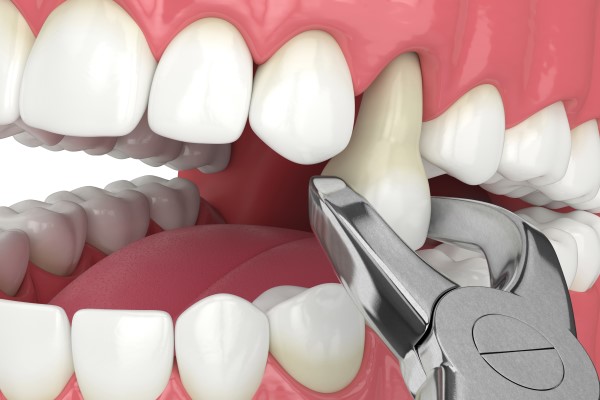How to Take Care of Your Mouth After a Tooth Extraction
Sometimes, a tooth may suffer such extensive structural defects that — which is the removal of a tooth from its socket by a dental professional — may be inevitable. Other times, it could be that the tooth is impacted or overcrowding the mouth. Regardless of the reason, the goal is to restore oral health and get rid of the pain. After the procedure, you need to take care of your mouth, as this is important for quick and optimal healing.
Taking care of the mouth after a tooth extraction
After undergoing a tooth extraction, follow some of these oral care tips to protect the mouth and prevent complications:
Rest adequately and be careful
Rest as much as possible and avoid exertion as much as possible. Until the anesthetic wears off, stay away from hot foods and beverages. This is critical because the anesthetic makes the mouth numb to pain, causing burns or scalding. Also, avoid chewing on the cheek as this is a fairly common issue when there is no sensation.
When sleeping, try to keep the head as elevated as possible for the first night, perhaps using an extra pillow. It is also good to use an old pillowcase or place a towel on the pillow in case there is slight bleeding.
Avoid rinsing
For the first 24 hours, resist the urge to rinse the mouth. The socket needs to heal, and to avoid damaging the blood clot, refrain from eating on that side or allowing the tongue to disturb the area. Dislodging the clot can lead to infection in the socket, which can impede healing.
Keep the mouth clean
After an extraction, it is necessary to keep the mouth clean. However, patients must exercise caution around the extraction site. Different individuals recover at different rates. It is important to keep the mouth and the extraction site as clean as possible, ensuring that the socket is free of food and debris. If patients avoid rinsing for the first 24 hours, the mouth will start to heal.
After the first day, use a salt-water mouthwash to aid in the healing of the socket. One teaspoon of salt dissolved in a cup of warm water and gently rubbed around the socket twice a day will help clean and heal the spot. Maintain this for at least a week, or according to the dentist’s recommendation.
Dealing with bleeding
It is important to note that there might be some minor bleeding for the first day or two. The amount of bleeding is a source of worry for many patients because a small amount of blood is combined with a large amount of saliva, making the bleeding seem more significant.
If bleeding occurs, do not rinse; instead, apply pressure to the socket. For about 15 minutes, bite tightly onto a clean cotton cloth, like a handkerchief. Ensure the pad is put directly over the extraction site and replaced when needed. If bleeding persists for more than an hour or more, reach out to the dentist.
The bottom line
Adequate care is important for optimal healing after tooth extraction. If you have more questions about oral care after a tooth extraction, contact our dental office.
Request an appointment here: https://www.smilesbyjulia.com or call Smiles By Julia at (954) 493-6556 for an appointment in our Fort Lauderdale office.
Check out what others are saying about our dental services on Yelp: .
Related Posts
Tooth extraction comes in different forms and for different reasons. This is not ordinarily the method that dentists prefer, but in some cases, removing a tooth is the right treatment. Often, a tooth is already in place when the dentist needs to remove it. However, a tooth can also be impacted and still require an…
Tooth extraction is recommended when an infection is about to get out of control or a tooth is so damaged that there are no treatments that can be used to repair or rebuild it. For most patients, their treatment does not stop after the tooth extraction unless it was a wisdom tooth that was removed.With…
We may have to consider tooth extractions if teeth have enough damage. Call us for more details.While tooth extraction is not our first option for treating infected teeth, it may become necessary in certain situations. Regardless, we will numb the area around the tooth so you will not feel any pain.Tooth ExtractionAt Smiles By Julia…
Getting your wisdom teeth removed can be a nerve-wracking experience. The recovery process alone, with the swollen cheeks, ice packs, and pain killers, is enough to make you feel that it is unnecessary despite what your dentist may say. However, wisdom teeth removal is often recommended as a means to prevent several painful illnesses. We…
